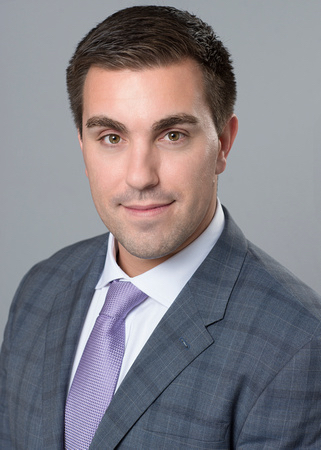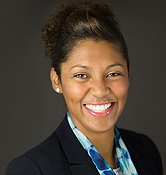 Tired of being the runner-up for promotions? Sulking over your ideas never getting implemented? Do you dream of being the go-to expert and can-do rainmaker? You’re in luck! You can have it all –admiration, authority, opportunity – and all you need are three magical letters after your name…
Tired of being the runner-up for promotions? Sulking over your ideas never getting implemented? Do you dream of being the go-to expert and can-do rainmaker? You’re in luck! You can have it all –admiration, authority, opportunity – and all you need are three magical letters after your name…
M. B. A.
That’s the pitch, at least. Come back to campus, the sirens serenade. Finish your education and the doors will open. People will look you differently. Chances are, you’ll add an extra zero on your tax return too. Believe that? The University of Cambridge Judge’s Tom Martin doesn’t. A regional director at Halifax Bank and 2018 EMBA graduate, Martin doesn’t view the degree as a silver bullet that’ll turn mediocrity into majesty or lackeys into leaders. Instead, he argues, it is an experience that amplifies who you are and accelerates what you’ll ultimately become.
Respect The Person, Not The Degree

Brendan Downing, University of Chicago (Booth)
“Actions speak louder than words,” Martin observes. “I know my work colleagues see a good leader: a wise and resilient one. They don’t respect and work with an “MBA”. They work with Tom, a man who’s learned to be the best he can be, and made sacrifices to get there. It’s the skills, knowledge and network gained that really matter and will make your dreams come true. If you just want the qualification, perhaps rethink!”
In other words, the MBA won’t automatically fill a void or vault a graduate into the c-suite. That’s a myth – a caricature that crowds out motivations like sharpening and rounding out skills, gaining hands-on experience in new areas, or building a wide-reaching network. In fact, there is a certain mythology that has sprouted up around the EMBA degree. Along with yarns about the degree’s prowess, you’ll find myths designed to dissuade applicants from returning to campus. Namely, critics will say, professionals are too old, too accomplished, or too busy for an MBA.
How true are such myths? As part of Poets&Quants’ Best & Brightest nomination process, we asked top EMBAs to share the biggest myths they encountered as applicants and students. Perhaps the biggest myth – or misunderstanding, at least – is why go back to business school in the first place. That was particularly true for company founders and CEOs like the University of Chicago Booth’s Brendan Downing or Michigan State Broad’s Spiros Assimacopoulos. Downing notes that he fielded several questions on the topic, answering that his decision was based more on “personal development” and conveying more clearly what he knew intuitively. For Assimacopoulos, the actual degree was almost an afterthought.
Work Experience Trumps
“I was questioned as to why I would bother since I already held the highest position in my company,” he recalls. “Why go back to school at 42? That’s weird. Going back to school is not about getting a diploma. It is about expanding your boundaries, validating your life and business experience, and establishing the basis for life-long learning.”
It wasn’t an easy adjustment, most Best & Brightest concede, but hardly impossible. Despite enrolling at Booth when he was nearly 60, Stephen L. Pedron, a maternal fetal medicine physician from Booth, was refreshed by feeling like a “novice” again. While Maurice Andrew Malcolm agrees that it is more difficult to learn at the same pace as an undergrad – let alone pull all night cram sessions – the Maryland Smith grad believes his experience makes up for slightly diminishing processing.
“I found it easier to connect concepts in learning material related to the business and managerial experience under my belt,” he says. “I had begun to understand why the things I did at work were successful and why they were not.”

Kafi Joseph, Georgetown University, McDonough School of Business
Georgia Tech Scheller’s Maureen Portee agrees that experience makes material more relevant. Although many EMBAs are returning to school after long absences – some stretching 20 years or more – most have faced similar issues as those found in their cases and activities. This gives them a head start in pinpointing variables and finding solutions. “My classmates bring years of practical business applications and that helps all of us learn,” observes Portee – known jokingly as the “mayor” of SunTrust Bank. “It is this combination of classroom and curriculum learning coupled with the work experience from my classmates that has led to enriched, practical, business applications.”
A Lot Can Change In 30 Years
Rocky Granahan completed her bachelor’s degree in marketing degree in 1988. Three decades later, she earned her MBA from Columbia Business School. Too much overlap? That was they myth that Granahan heard as a senior vice president at OppenheimerFunds. Turns out, the MBA enabled her to re-tool what she already knew to prepare for the changes ahead.
“My experience is that the evolution of technology has drastically changed the client experience or how one would view marketing a brand or product. There is value in understanding how to read the financials of technology companies, which are different from manufacturing, utility, or other consumer good companies. The emphasis on soft skills and management is better than I expected. Those are the areas that became most relevant to me after 25 years of work experience.”
Much can change over the years. Still, applicants sometimes hear that returning to school is “just like riding a bike.” Translation: Once you get back on, it’ll all come back to you naturally. Of course, the simile falls apart, says SMU Cox’s Erik Day, when you factor in the never-ending demands of work and family. That’s a drastic difference from undergrad says Kafi Joseph, a West Point grad who earned her master’s degree in systems engineering at George Washington University. Now a commercial director at Accenture Federal, Joseph asserts that b-school success hinges on students better managing their responsibilities outside class.





Questions about this article? Email us or leave a comment below.